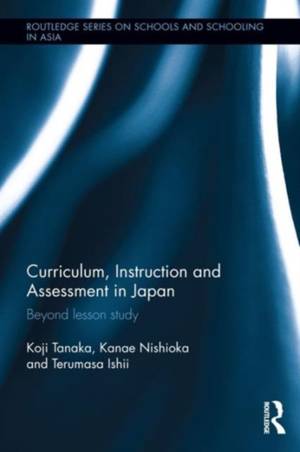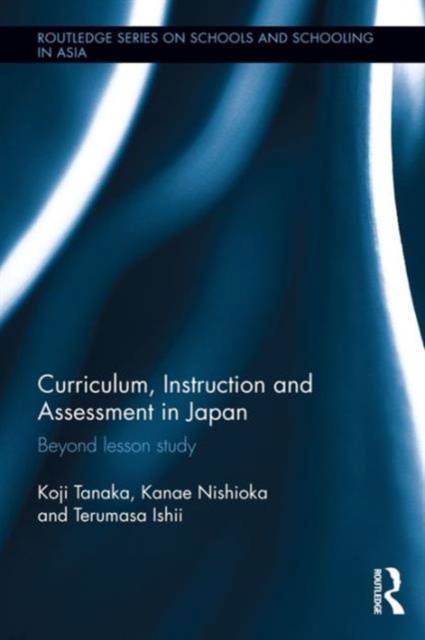
- Retrait gratuit dans votre magasin Club
- 7.000.000 titres dans notre catalogue
- Payer en toute sécurité
- Toujours un magasin près de chez vous
- Retrait gratuit dans votre magasin Club
- 7.000.0000 titres dans notre catalogue
- Payer en toute sécurité
- Toujours un magasin près de chez vous
Curriculum, Instruction and Assessment in Japan
Beyond Lesson Study
Koji Tanaka, Kanae Nishioka, Terumasa IshiiDescription
This book provides a comprehensive overview of the history and current status of policy, research and practices of curriculum, classroom instruction and assessment in Japan. It outlines the mechanism of curriculum organization and the history of the National Courses of Study, and assesses the theories of academic ability model. It also discusses in detail the history of "Lesson Study" - a characteristic teaching practice in Japan which utilizes groups, and reviews the history of educational assessment in Japan. Case studies on the practice of portfolio assessment in the Period for Integrated Study, as well as the practice of performance tasks in subject-based education are illustrated to show various examples of teaching practices.
Curriculum, Instruction and Assessment in Japan explores:
- Child-centered Curriculum and Discipline-Centered Curriculum
- Theories based on Models of Academic Achievement and Competency
- Various Methods for Organizing Creative Whole-Class Teaching
- Performance Assessment in Subject Teaching
A good guideline for those who would like to use the idea of "Lesson Study" in order to improve their own teaching and management practices and a reference to all working in educational improvement, this book will be of interest to educators and policymakers concerned with curriculum practices or those with an interest in the Japanese education system.
Chapters 2 and 5 of this book are freely available as downloadable Open Access PDFs at http: //www.taylorfrancis.com under a Creative Commons Attribution-Non Commercial-No Derivatives (CC-BY-NC-ND) 4.0 license.
Spécifications
Parties prenantes
- Auteur(s) :
- Editeur:
Contenu
- Nombre de pages :
- 154
- Langue:
- Anglais
- Collection :
Caractéristiques
- EAN:
- 9781138892514
- Date de parution :
- 08-09-16
- Format:
- Livre relié
- Format numérique:
- Genaaid
- Dimensions :
- 156 mm x 233 mm
- Poids :
- 459 g

Les avis
Nous publions uniquement les avis qui respectent les conditions requises. Consultez nos conditions pour les avis.






